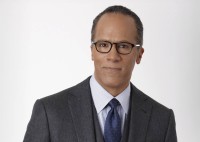By MICHAEL VOLPE
An estimated 180 million viewers watched Republican businessman Donald Trump take on the Democratic former Secretary of State, Hillary Clinton in the first debate of the 2016 Presidential election. The Sept. 26 televised match-off attracted the most viewers in the history of debates in the United States with 180 million people watching one moderator attempt to control a heated exchange of policy, insults, and discussion.
An issue that has been raised as a result of the debate season, along with the reaction to Lester Holt’s moderation of the first presidential debate this election year is whether or not we are utilizing the effective role of moderators.
Paranoid and untrustworthy of the modern press, Republican Candidate, Donald Trump weighed in on this issue when speaking to CNBC by explaining that not only should we change the current format, but that he would love to see a debate with no moderators at all.
“We shouldn’t have moderators because the system is rigged,” explained the billionaire candidate. “I’m going to be treated very unfairly.”
Following suit with a common theme of his campaign, Trump believes the media is so directly working against him, and that there is no possible way that a moderator would do an objective job at conducting the debate.
The format of the debate was set up so that Holt would only ask around 6 questions to the candidates, leaving the majority of the time open for debate. While this was good on paper, it did not translate well into the actual debate because the lack of presence the moderator had allowed for numerous interruptions, random sidetracks and other counterproductive elements.
[AUDIO: Listen to Matt Searfoss of the College Republicans speak on the current role of moderators in political debates.]
While this has excited his conservative base, younger voters or millennials, a group that Trump would surely love to command in the polls, are not sold on his logic and generally believe the system displayed on Monday night is good enough.
When speaking to students on campus at Ramapo College, many weighed in on the debate and their opinion of the current framework of the debate rules.

“I think the setup of the debate was a good idea in the sense that it was supposed to kind of take the moderator out of the game. It was supposed to be a mostly open discussion, but when you’re trying to control Donald Trump, moderating becomes a little different,” explained Ramapo Senior, Bobby Dragonette, 21.
“The debate should be focused on the candidates so as long as the moderator stays invisible for the most part, the debate is running how it should,” said Julie Spiezia,20.
Since the debate was the most watched debate program in the history of the country, Americans had a lot to say about the job NBC’s Holt did when confronting two of the most polarizing individuals that politics has ever seen. Students interviewed felt he generally did well, some students on campus felt as if there were numerous questions left unasked to Clinton, implying journalistic bias.
“They didn’t ask her one question about her emails, being investigated by the FBI or basically anything that would make her look bad, but that’s the media,” explained senior, Brian Ferrie, 21.
A common view among young conservatives, the belief that Hillary Clinton has received a lack of on the spot, hard questions is beginning to turn them away from accepting the current debate format.
Ultimately, with two debates to go before one of the most important elections of our time, it is essential to critically analyze the debate rules in order to give the voters a better chance at understanding who they truly want to put in the White House come November.
Besides the moderator not asking Hilary about her emails what other questions do millennials want to know.